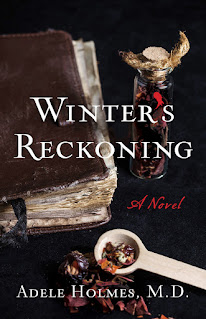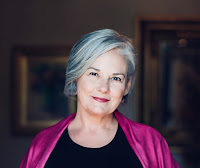In 2019, while pitching my first novel which involved discrimination during the Jim Crow era, I was asked if I’d had a sensitivity read. In all honesty I’d never heard of the term, but its implication was fairly easy to pick up, so I brightly replied, “Yes.”
I’m white. Two of my beta-readers were Black. They both heartily approved of my manuscript. That’s the same as a sensitivity read, right? As it turns out, the answer is a definitive, “No.”
Luckily the agent did not offer a contract, and I went home to delve more deeply into the subject of sensitivity readers. A web search for articles from within the writing community revealed a deep divide—imagine that, in America, a deep divide over otherness. Not only was there disagreement on when and where, or even if, a sensitivity read was necessary, but there gaped a huge hole where the definition should have stood.
Those inclined to recommend such a manuscript review argued that no one outside a certain criteria (race differences, cultural differences, gender-identity differences, any you-name-it differences) could appropriately speak to the situation without oversight from someone inside the criteria.
Those against sensitivity reads bemoaned censorship of the author’s right to write about whatever they chose, without muzzling for the sake of political correctness.
I found little indifference on the subject, no shrugging of the shoulders with a quiet, “Meh.”
In the years since, likely due to the spotlight of the #OwnVoices movement, most writers have a working concept of what a sensitivity read is. The dictionaries, wikipedia included, have not yet applied a strict definition. Many publishers now require a sensitivity read for any manuscript that has the possibility for cultural inappropriateness. And still the debate rages with very little middle ground.
Back in 2019, a hard look at the facts of my situation led me to realize that my beta-readers were my friends, and as such, they might be biased in my favor. I chose to contract a professional sensitivity reader, and I’m glad I did. She found little to correct, a fact that bolstered my confidence in the cultural appropriateness of my novel. What she did correct was incredibly instructive to me. While I had no instances of the “white savior” role popping up, there were a few examples of white privilege that I had overlooked to call out.
I make no pretense of calming the waters; this tempest will likely never subside. But the honest sensitivity review I received made my book better—and made me a better person. I’d do it again in a heartbeat.
* * *
~~~~~~~~~~~~~~~~~~~~~~~~~~~~~~~~~~~~~~~~~~~~
Would you like to participate in Friday "Speak Out!"? Email your short posts (under 500 words) about women and writing to: marcia[at]wow-womenonwriting[dot]com for consideration. We look forward to hearing from you!
~~~~~~~~~~~~~~~~~~~~~~~~~~~~~~~~~~~~~~~~~~~~
Would you like to participate in Friday "Speak Out!"? Email your short posts (under 500 words) about women and writing to: marcia[at]wow-womenonwriting[dot]com for consideration. We look forward to hearing from you!
~~~~~~~~~~~~~~~~~~~~~~~~~~~~~~~~~~~~~~~~~~~~



Adele--A year ago in April, my historical novel about the Tulsa Race Massacre was published. It is a mix of fictional characters and real-life people. I am White and old. My protagonist (Henry) is Black and young. I received a few rejections that included they only published OwnVoices stories. Someone said, "Wait 10 years, until the playing field levels out a bit." (I was already in my 60s. Would I even be alive in 10 years?)
ReplyDeleteI certainly get it. I wish the publishing field represented writers in an equal way. For centuries, white writers dominated (and monopolized) the book shelves. That is definitely unfair.
Luckily, I am represented by a small but mighty publisher. She was determined that Henry's voice be heard. Greenwood Gone: Henry's Story is now in classrooms and on bookshelves.
One interesting occurrence (and your post reminded me of it): an all-Black book club read my book. I joined them in their discussion. One woman said, "I wish the couple who helped out some people weren't White." She was referring to one part of the book and wanted the Black people to be portrayed as self-sufficient, like they didn't need rescuing by the great White Savior. I had to explain that the couple in question were two historical figures--I did not make them up.
Good luck with your book... and good luck with staying on the right path and fighting the good fight.
Sioux, thanks for reading and for sharing your experiences!
DeleteHi Adele ~ Great post! I think sensitivity readers are important, especially when writing fiction outside of your background and experience, just as it is to workshop your writing. I wish it were called something else--maybe "authenticity readers" because I feel like that's what it comes down to in the end - making sure the characters, plot, setting, etc. read authentically. Congratulations on your forthcoming novel! It sounds like a great read, and I love She Writes Press books. :)
ReplyDeleteAuthenticity Readers--I love that; we aren't just giving lip service to cultural appropriateness, we are trying to get it right, asking an authority when we are not one. Thanks for reading and commenting!
DeleteGreat info. Thanks for sharing your experience!
ReplyDeleteThank You!
DeleteThank you for this post. As a journalist (before I turned to fiction), I sure learned the importance of checking with experts and getting the context and nuances right -- as well as the facts. Now you've explained how it works in fiction, too.
ReplyDeleteThanks, Fran!
ReplyDeleteI enjoyed your article today - I tried to post on it; we will see if it appears any time soon.